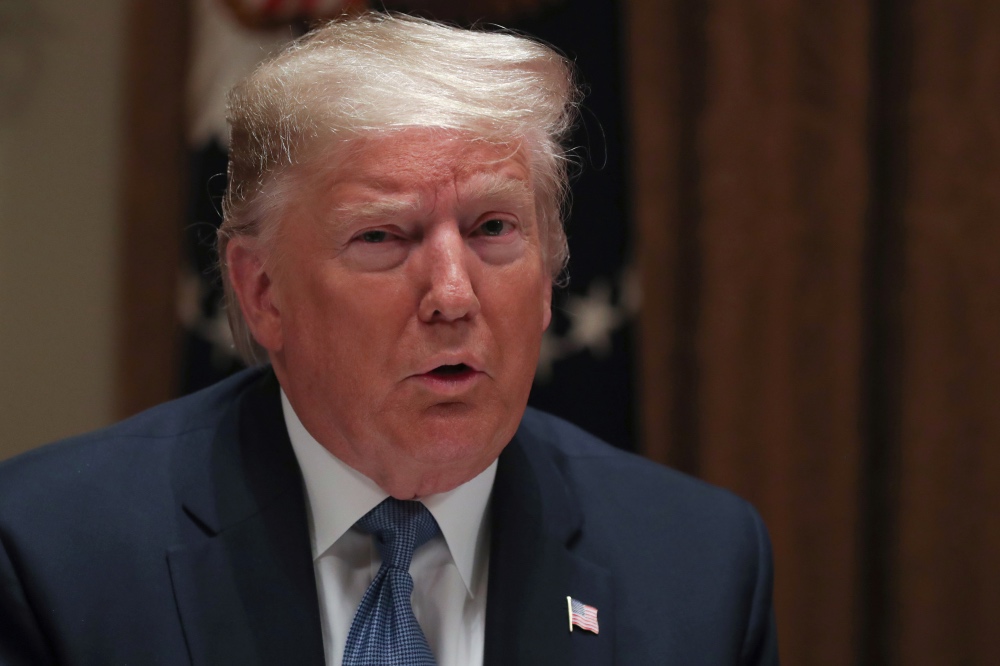Washington DC, US
Reuters
US President Donald Trump has refused to engage with the House of Representatives’ impeachment inquiry but is expected to adopt a very different strategy in the likely event of a trial in the Senate.
The Republican President has said he wants a full trial in the Senate because he would receive fair treatment there. The chamber is controlled by his party, unlike the House, where opposition Democrats have a majority.

The following explains how Senate impeachment proceedings work and some of the strategic manoeuvres available to Senate Majority Leader Mitch McConnell.
What is the Senate’s role?
Senators will listen to evidence presented by House members if, as expected, the House votes to impeach Trump. The President will be represented by defence lawyers, and US Chief Justice John Roberts will oversee the proceedings.
The senators will consider the evidence and vote on whether Trump is guilty of the impeachment charges presented by the House. A two-thirds majority is required for any vote to remove him from office. With Republicans holding a majority in the chamber, it is seen as highly unlikely that he would be found guilty in any trial.
Can Trump call witnesses?
Trump has said he wants to call former Vice President Joe Biden, who is a leading contender for the Democratic presidential nomination in 2020, and his son Hunter Biden, who served on the board of Ukrainian energy company.
Trump, who is seeking re-election, has accused the Bidens of corruption, without providing evidence, and pushed Ukraine’s President to investigate them in a 25th July phone call that triggered the impeachment inquiry. Trump has defended the phone call as perfect and said he did nothing wrong.
Biden has said he would not voluntarily testify at a Senate trial but has not said how he would respond to a subpoena. The prospect of Biden leaving the campaign trail to defend himself against Trump’s allegations in the very chamber where he served for decades holds the potential for must-watch TV.
Historically, a president’s defence lawyers have been allowed to request witness testimony, but such demands must be approved by a majority of senators.
In the 1999 impeachment trial of Democratic President Bill Clinton, Republican sought to call witnesses. Democrats objected, saying their live testimony would drag out the proceedings. Ultimately, three witnesses were questioned in private by both sides. Videotaped excerpts of their depositions were then played at the trial.
What has McConnell said he will do?
McConnell has said publicly that if the House approves the articles of impeachment, he will begin a trial in the Senate and will try to negotiate trial rules with Senate Democratic leader Charles Schumer.
If McConnell fails to reach agreement with Schumer, he would try to muster the 51 votes need to pass a set of rules. McConnell says that in the event that 51 senators cannot agree on rules, the process would be decided through a series of motions, or proposals submitted by senators.
During Clinton’s impeachment trial, the Senate voted 100-0 to adopt a set of rules. That bipartisan resolution laid out specific procedures for managing floor time, calling witnesses, and presenting arguments.
How long will the trial last?
That is unclear, but one guidepost is Clinton’s trial, which lasted five weeks and ended in his acquittal.
House Democrats have moved quickly in their impeachment inquiry amid concerns among some in the party that the political drama in Washington could damage their efforts to win voters in swing congressional districts in next year’s election. In the Senate, it is not clear how rapidly McConnell will proceed, especially since Republicans have accused Democrats of moving too hastily in their inquiry.
The trial could effectively sideline from the campaign trail two leading contenders, Senator Bernie Sanders of Vermont and Senator Elizabeth Warren of Massachusetts, as well as Biden, if he is called to testify.
Trump has used the Democrats’ impeachment inquiry to energize supporters and raise money for his re-election campaign. His public comments about wanting a full trial suggest he could embrace a protracted fight in the Senate.
Can McConnell end the trial early?
The Senate rules adopted for the Clinton impeachment allowed members to file motions to dismiss the charges against the president. If such a motion passed by a simple majority, the impeachment proceedings would be effectively ended.
In the middle of the Clinton impeachment proceedings, a Democratic senator sympathetic to Clinton introduced a motion to dismiss, but it was voted down.






